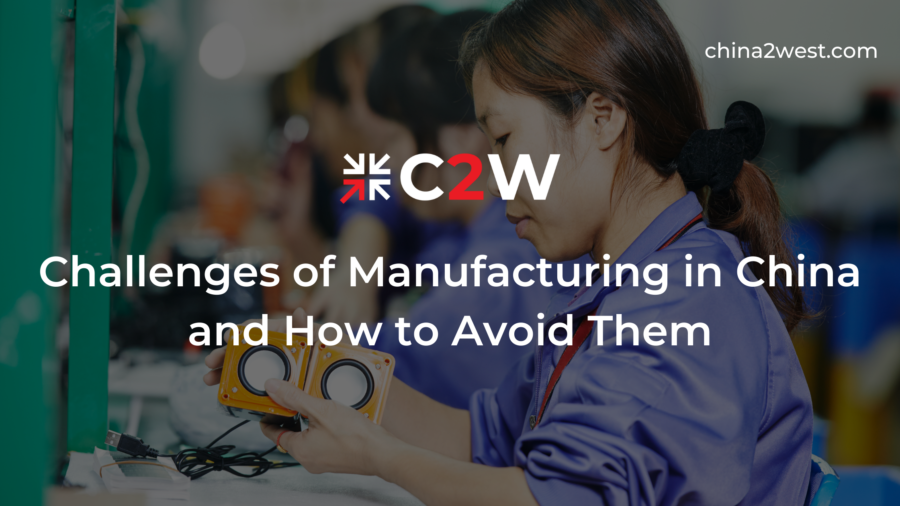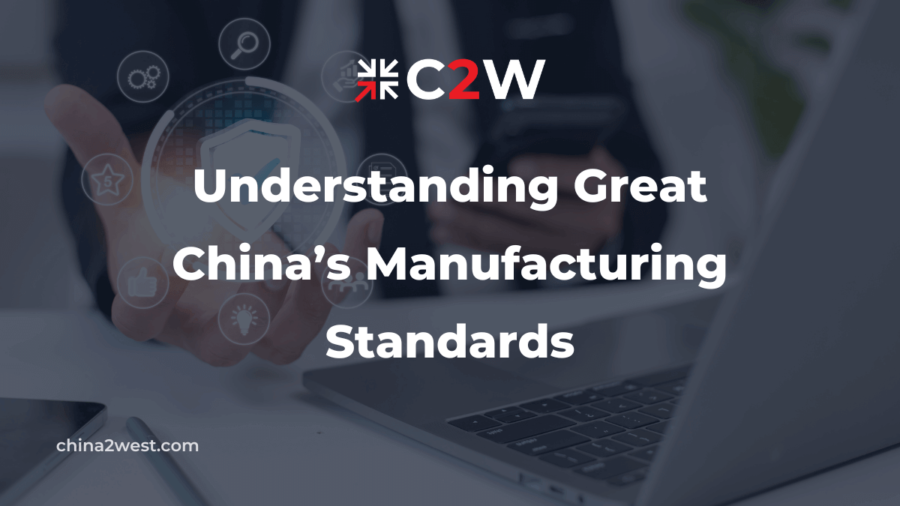You’ve seen it before: a shoddy consumer electronic made by manufacturing in China.
Poor quality materials, damaged by careless assembly workers, and shipped in an unsatisfactory package. These low-quality products are not only unappealing to customers, but they can also hurt the reputation of your business.
Manufacturing goods in China comes with a wealth of benefits. But if you want to reap these benefits, it’s essential that you keep an eye out for the pitfalls. With a bit of knowledge and some care, you can avoid the less fortunate outcomes when outsourcing your production to a manufacturing partner in China.
Read on for more insight on how to avoid these disadvantages.
Having No One to Trust
The number one issue businesses outsourcing their production to China face is having someone in the factory they can rely on. While you may have paid them good money, and the negotiation phase went well, it’s important to understand that they are a business first.
As such, you need someone who you can not only rely on but who knows enough about manufacturing to recognize when a problem has arisen. Further, this person needs to speak Chinese and have extensive familiarity with the culture. An agent who reports to you directly won’t sugarcoat an issue.
This person needs to be there every step of the way. They should not only be monitoring the production lines, they should be coordinating with managers. They can also provide a crucial fallback for quality control.
Make sure you hire someone who does not have a conflict of interest with the manufacturing partner.
Decline in Product Quality
You might be comparing the product samples and prototypes they made before signing the deal. It may appear that the initial prototype is a golden sample.
The most recent version of the product, though, seems inferior. They made it with different materials, different processes, and possibly in a different factory. It isn’t up to snuff with your standards.
China quality control is essential, and having your products made on the other side of the planet only complicates this issue. Manufacturing in China is competitive, so it’s likely they offered a low price upfront with a high-quality sample to get your business.
Further, they might be working with multiple partners, some of which may be higher-paying customers. They may be devoting more resources and time to a competitor’s product than yours.
This is, again, where your agent comes in. They can follow the production process from beginning to end and identify if any changes have been made that you were not aware of. Further, they can keep these high-quality samples on hand to do quality control.
It may be necessary to have a sit-down with your Chinese manufacturing partner to discuss the decline in quality. You may need to come to some arrangement to ensure this doesn’t happen again.
Delivery Delays
When something is delayed at the other side of the world, those delays can be long. It already takes 2-4 weeks for a shipping container from China to reach the USA. The last thing you want is for your product to arrive long after the predicted shipping dates to your customers.
There can be a number of causes for delays, so it’s important to identify when it might be one over another.
A common source of delays is that China manufacturing companies have moved a certain section of production to another company. For example, they’ve relocated the annealing process. That means that until that factory finishes its annealing, the main factories cannot continue with production as planned.
Another common issue is that the deadline is unrealistic. In order to meet a strict deadline, these factories may take shortcuts to get your product to you on time. Or, they may simply deliver them late.
Whatever the case, communication is key here. Not only having an agent in place to monitor what’s going on (and alert you to these changes before they come as a sudden surprise) but getting honest feedback from your partner.
In Chinese culture, they frown upon confrontation and questioning a superior. This can be a difficult cultural hurdle to overcome, so be aware that your partner may be avoiding these pain points to ensure the process goes as smoothly as possible.
Depending on Past Reputation
You may have come upon your current Chinese manufacturing partner via a reference. They cited excellent communication, top-notch quality, and rapid turnaround.
However, competition is cutthroat in China, and there is a fluid aspect to China manufacturing that businesses are always undergoing significant change.
Factories may go under, with new ones replacing them. Management is in constant flux. Talented managers may make regular career moves to higher-paying opportunities, leaving less-than-satisfactory management in their wake.
In short, you need to be aware that things can change at the drop of a hat. Chinese manufacturing companies have all sorts of tactics to keep your business while skimping on quality.
They may take advantage of your goodwill. You may feel tempted to wait and see if this production round was just a fluke. The factory won’t gainsay you in that respect.
If your partner is consistently pushing out bad-quality products, then temporarily stop giving them orders. Make it clear that they won’t get further business until they improve the situation. There’s no shame in threatening to walk away, and with abundant competition, they can’t afford to say no to your business.
Use Manufacturing in China You Can Trust
Perhaps you’ve been struggling to get your product out on time, and at the highest quality possible. You’ve resorted to all of these steps, but the same issues keep popping up day after day.
A China sourcing company can help to make your manufacturing in China a breeze. They can help you with everything from supply chain management, to product development.
Find a china sourcing company that can help you with your unique needs today!


